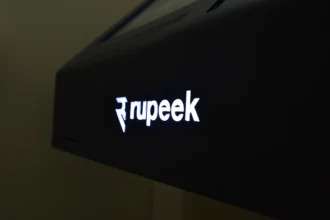There was a time when Manchester City was just a club known mostly in England. But things have changed. Now, it’s one of the most followed football teams in the world. From kids in Tokyo wearing the sky-blue jersey to fans in New York setting alarms for matchday, City has become a global name.
In this piece, we’ll explore how Manchester City grew into a global club and what’s changing when it comes to ticket access.
The Global Rise of Manchester City’s Fanbase
Manchester City’s fanbase has grown faster than almost any other club in recent years. Just a decade ago, most of their support came from Manchester and nearby towns. Today, the sky-blue shirts are seen across Asia, America, Africa, and beyond. One of the biggest reasons is the team’s success on the pitch.
Winning the Premier League, FA Cup, and Champions League has pulled in millions of fans who love watching a team that plays fast, smart, and exciting football.
But winning games is only part of the story. The club’s owners, under the City Football Group, have invested heavily in growing the brand around the world. They’ve launched football academies in different countries, opened pop-up stores in major cities, and even hosted pre-season tours in the US, Asia, and Australia. This makes international fans feel closer to the team, even if they live far from Manchester.
Social media has also played a huge role. Manchester City is active across all platforms — posting training clips, behind-the-scenes videos, and interactive content in multiple languages. Fans can now follow every match, cheer for players, and connect with other supporters online, no matter where they are.
Even younger fans are jumping on board. City’s fun, modern image, along with players like Haaland and De Bruyne, has helped build a new generation of supporters who enjoy both the football and the lifestyle around it.
Ticket Accessibility Trends
Here are some ticket accessibility trends.
Digital-Only Tickets Becoming the Norm
Manchester City, like many big clubs, now uses digital tickets for most matches. Instead of printed tickets, fans get a QR code on their phones. This helps stop fake tickets and makes entry quicker. But not everyone finds it easy.
Older fans or those without smartphones can struggle with this system. Sometimes, the app crashes, or people can’t access their Manchester City tickets due to poor internet on matchday. The club has tried to solve this by offering support at stadiums, but it’s still a learning curve for many.
On the other hand, digital tickets are handy for fans who buy late or travel from abroad. They don’t need to wait for delivery. Overall, while digital ticketing is efficient, the shift hasn’t been smooth for all fans — especially locals used to traditional ways.
Rising Prices for High-Demand Matches
As the City’s success grows, so does demand—and ticket prices often follow. Big games like Champions League nights or matches against rivals like United or Arsenal usually cost more than others. Some fans feel priced out, especially locals or families who’ve supported the club for years.
While there are still season tickets and membership options, even those have seen price increases in recent seasons. International fans are often more willing to pay high prices, which can push costs up even more. The club argues that top-level football costs more to deliver.
Still, many believe there should be a better balance between making money and keeping long-time supporters involved. Affordable pricing helps maintain the heart of the fanbase and ensures the stadium atmosphere stays real. Clubs like City need to find ways to include everyone.
Membership Tiers Creating Divides
Manchester City offers several membership levels that affect how and when fans can buy tickets. The higher your tier, the earlier you get access. This system benefits those who can afford the top levels or who attend matches often. But for casual fans or those living abroad, it can be frustrating.
By the time tickets are open to general sale, they’re often gone. This makes it harder for new or occasional fans to get seats unless they buy from resellers at higher prices. While the tier system is meant to reward loyalty, it also creates a clear divide between regulars and others. Some fans feel the experience is becoming too exclusive.
Others show creating separate pools for international fans, families, or young supporters. More flexible systems could help make the ticket process fairer for all kinds of fans.
Secondary Market and Resale Issues
With high demand and limited supply, many fans turn to resale platforms. But this comes with risks. Some websites charge huge fees, while others sell fake or invalid tickets. Manchester City has an official resale channel, but it’s only available for season ticket holders and is often limited in availability. Fans who travel from other countries often rely on third-party platforms because the main tickets sell out quickly.
Unfortunately, many get scammed or end up paying double the original price. This is why experts suggest buying directly from the club whenever possible. Some fans have also called for the club to tighten rules and monitor resellers more closely.
More awareness, better resale systems, and official exchanges would help protect genuine supporters from being overcharged or fooled. It would also keep the stadium full of real fans rather than empty seats due to ticket misuse.
Conclusion
Manchester City now has fans from all over the world. That’s great, but it also means getting tickets is harder than before. Prices are going up, digital tickets can be tricky, and many fans feel left out. Some people who’ve supported the club for years now find it tough to watch games live.
To fix this, the club needs to keep things fair and simple. That means better rules, clear updates, and more chances for all fans to get tickets. Football is for everyone, and the joy of watching a match should be easy to share — no matter where you’re from.

















